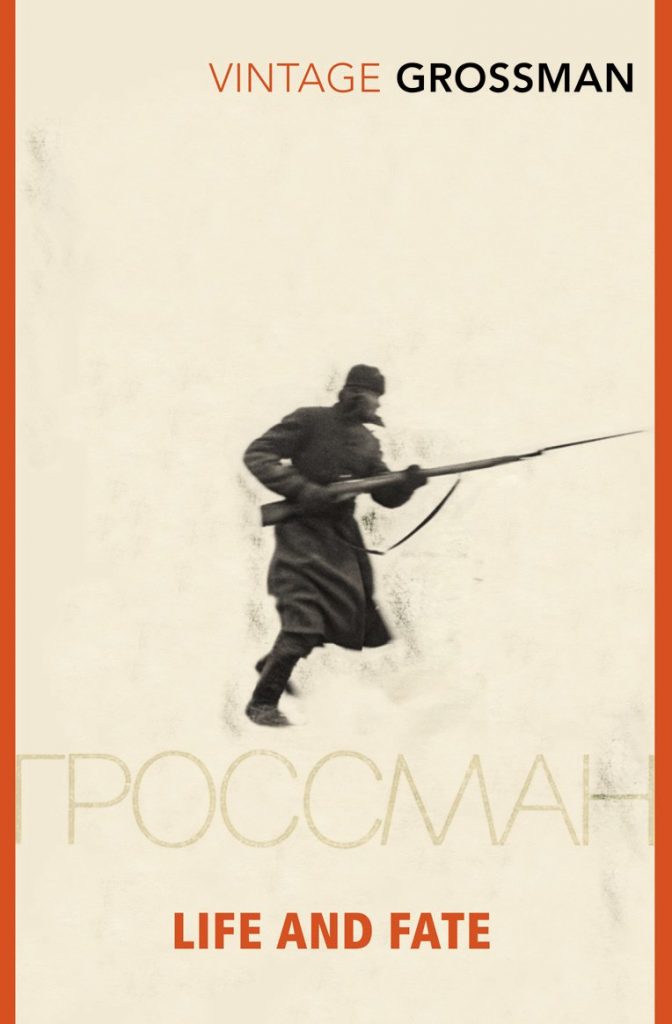Review: Grossman, Life and Fate November 25, 2017
Author: Beach Combing | in : Contemporary , trackbackVasily Grossman, Life and Fate [1960]
This blogger has been very reluctant to write posts on historical fiction for the simple fact that he cannot stand most representatives of the genre. But Life and Fate was started reluctantly during the recent flu wars, and has been great bedtime and pre-siesta reading ever since. Written in the 1950s, by Vasily Grossman, Life and Destiny was the attempt of an established Soviet writer and journalist* to describe the war in the Soviet Union as Lenin’s dream totters. The author is incredibly, almost insanely ambitious: there are scenes in Paulus’ bunker, in Hitler’s office, with Stalin on the telephone, but also in the house-to-house fighting in Stalingrad, in a laboratory, in a tank corp, on an airfield, in a gas chamber… There are eight pages of major characters at the end of the book. All of this is made more interesting by the wiles of Russian nomenclature that mean that each character can be called by one of four different names.
Most readers will tell you that this is an epic on the scale of War and Peace. Not sure about this and there are, thank God, relatively few historiographical reflections. What Beach loved was the fact that this was a book about the Soviet Union at its worst and yet most glorious moment, written by someone who, though, no Stalinist was clearly a true-believer. There is a lot of criticism of the regime and its excesses: the book was banned in the USSR until 1988. But Grossman is no dissident trying to bring down the party. This makes for many interesting parallels between the Soviet Union and Nazi Germany. At one point a German soldier in a hospital bed makes a comment he regrets: ‘No one can understand unless he himself lives in a totalitarian empire.’ Does that include, ‘real socialism’? In one of the great chapters of the book a Gestapo officer and a communist political prisoner have an awkward philosophical discussion about the power of the state and the pathetic, carping sensibilities of liberals. Once, meanwhile, reading late at night a chapter about a prison camp, Beach got confused whether he was in a gulag or a Larger…
The individual chapters are often extraordinarily powerful: many, many could stand as short stories. But the chapters then often fail to join up. The impossibly big cast of characters bleeds in and out: some are glimpsed vividly then disappear forever, some bob along in the background, some get beaten up by the NKVD… It is fair to say that no one’s life ends well: happiness is not part of the Soviet project. All this makes for a very disconnected experience of reading. But doesn’t that, in the end, ring truer to what life is, at least Lenin’s version of life? Not sure whether Grossman planned things this way or whether he just got bored with some of his marionettes. Still to be recommended in the highest possible terms. If Beach ever does a course on totalitarianism or the Soviet Union this will be near the top of the reading list. ‘But prof, it is 800 pages long…’ Bald man in the lectern smiles.
Any other great books: drbeachcombing AT yahoo DOT com
*Can’t think of another example of a journalist who is so greatly admired as a serious author.



